Rumah >hujung hadapan web >tutorial js >解析jQueryEasyUI的使用
解析jQueryEasyUI的使用
- 高洛峰asal
- 2016-12-05 15:49:361183semak imbas
jQueryEasyUI的使用方法其实非常简单。在第一次使用中,也还是碰到了些问题,特地做了一个简单的示例,然后复制过来文档。
页面代码:
<html>
<head>
<title>jQuery EasyUI学习</title>
<script src="../../Scripts/jquery-1.4.1.min.js" type="text/javascript"></script>
<script src="../../Scripts/jquery.easyui.min.js" type="text/javascript"></script>
<link href="../../themes/default/easyui.css" rel="stylesheet" type="text/css" />
<link href="../../themes/icon.css" rel="stylesheet" type="text/css" />
<script type="text/javascript">
$(function() {
$("#Tree").tree({
url: "/Home/GetJson",
onClick: function(node) {
alert(node.text);
}
})
})
</script>
</head>
<body>
<ul id="Tree">
</ul>
</body>
</html>
后台代码:
public class HomeController : Controller
{
public ActionResult Index()
{
return View();
}
public ActionResult About()
{
return View();
}
public ActionResult GetJson()
{
Node node4 = new Node(4, "java从入门到精通", "open", null);
Node node5 = new Node(5, "30天精通C#", "open", null);
List<Node> ListNode2 = new List<Node>() { node4 };
List<Node> ListNode3 = new List<Node>() { node5 };
Node node2 = new Node(2, "java分类", "closed", ListNode2);
Node node3 = new Node(3, "c#分类", "closed", ListNode3);
List<Node> ListNode1 = new List<Node>() { node2, node3 };
Node node1 = new Node(1, "图书分类", "closed", ListNode1);
List<Node> ListNode0 = new List<Node>() { node1 };
return Json(ListNode0, JsonRequestBehavior.AllowGet);
}
}
public class Node
{
public Node(int Id,string Text,string IconCls, List<Node> Children)
{
id = Id;
text = Text;
iconCls = IconCls;
children = Children;
}
public int id
{
get;
set;
}
public string text
{
get;
set;
}
public string iconCls
{
get;
set;
}
public List<Node> children
{
get;
set;
}
}
显示效果如下:
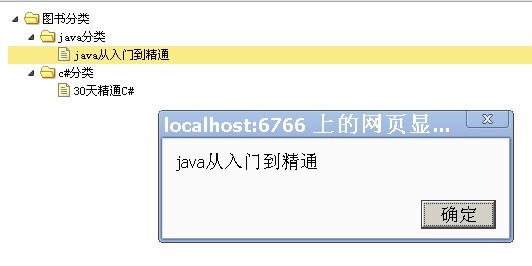
上面的示例中没有方法的调用示例,jQueryEasyUI方法的调用很奇葩的说,如:
alert($("#Tree").tree('getRoot').text); //调用getRoot方法
$("#Tree").tree('collapseAll'); //调用collapseAll方法
参数:
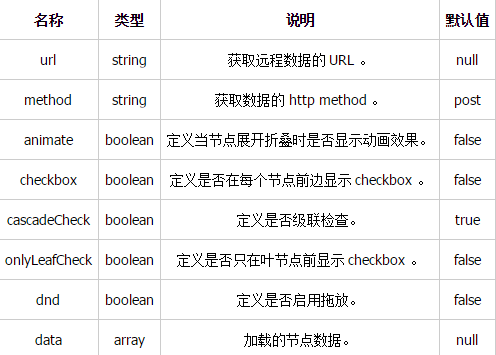
事件
很多事件的回调函数需要 'node' 函数,它包含下列特性:
id:绑定到节点的标识值。
text:显示的文字。
checked:是否节点被选中。
attributes:绑定到节点的自定义属性。
target:目标的 DOM 对象。
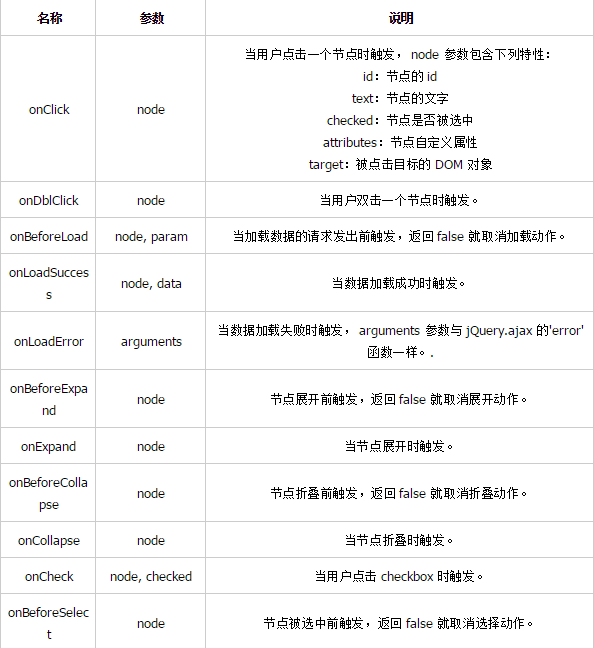
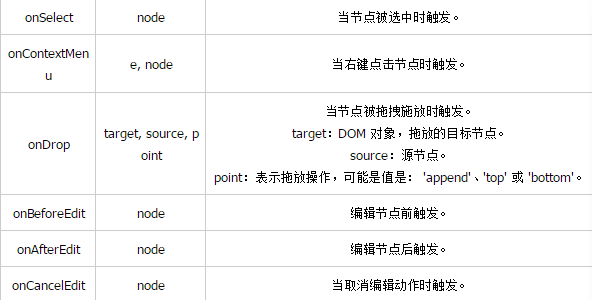
方法
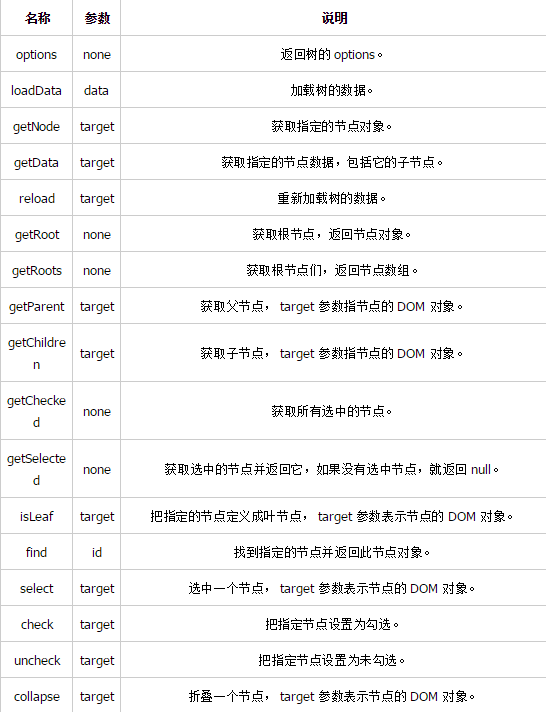
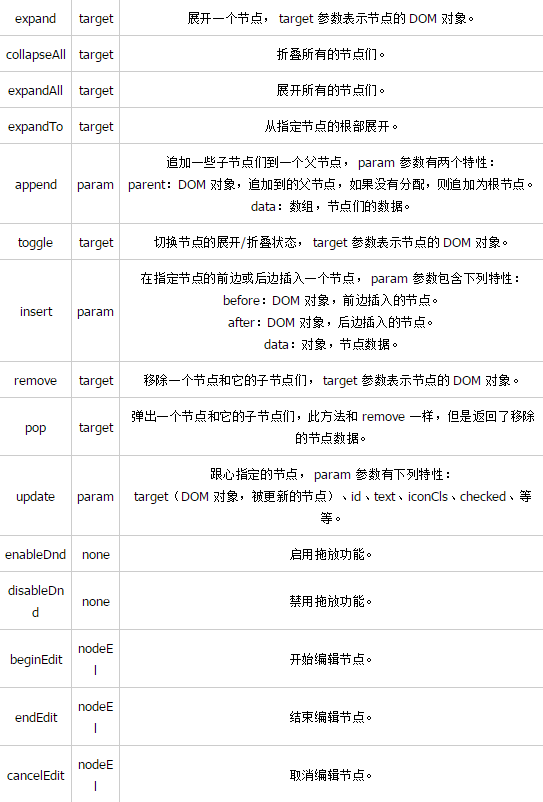
Kenyataan:
Kandungan artikel ini disumbangkan secara sukarela oleh netizen, dan hak cipta adalah milik pengarang asal. Laman web ini tidak memikul tanggungjawab undang-undang yang sepadan. Jika anda menemui sebarang kandungan yang disyaki plagiarisme atau pelanggaran, sila hubungi admin@php.cn
Artikel sebelumnya:详解jQuery的Cookie插件Artikel seterusnya:详解js界面跳转与值传递
Artikel berkaitan
Lihat lagi- Analisis mendalam bagi komponen kumpulan senarai Bootstrap
- Penjelasan terperinci tentang fungsi JavaScript kari
- Contoh lengkap penjanaan kata laluan JS dan pengesanan kekuatan (dengan muat turun kod sumber demo)
- Angularjs menyepadukan UI WeChat (weui)
- Cara cepat bertukar antara Cina Tradisional dan Cina Ringkas dengan JavaScript dan helah untuk tapak web menyokong pertukaran antara kemahiran_javascript Cina Ringkas dan Tradisional

